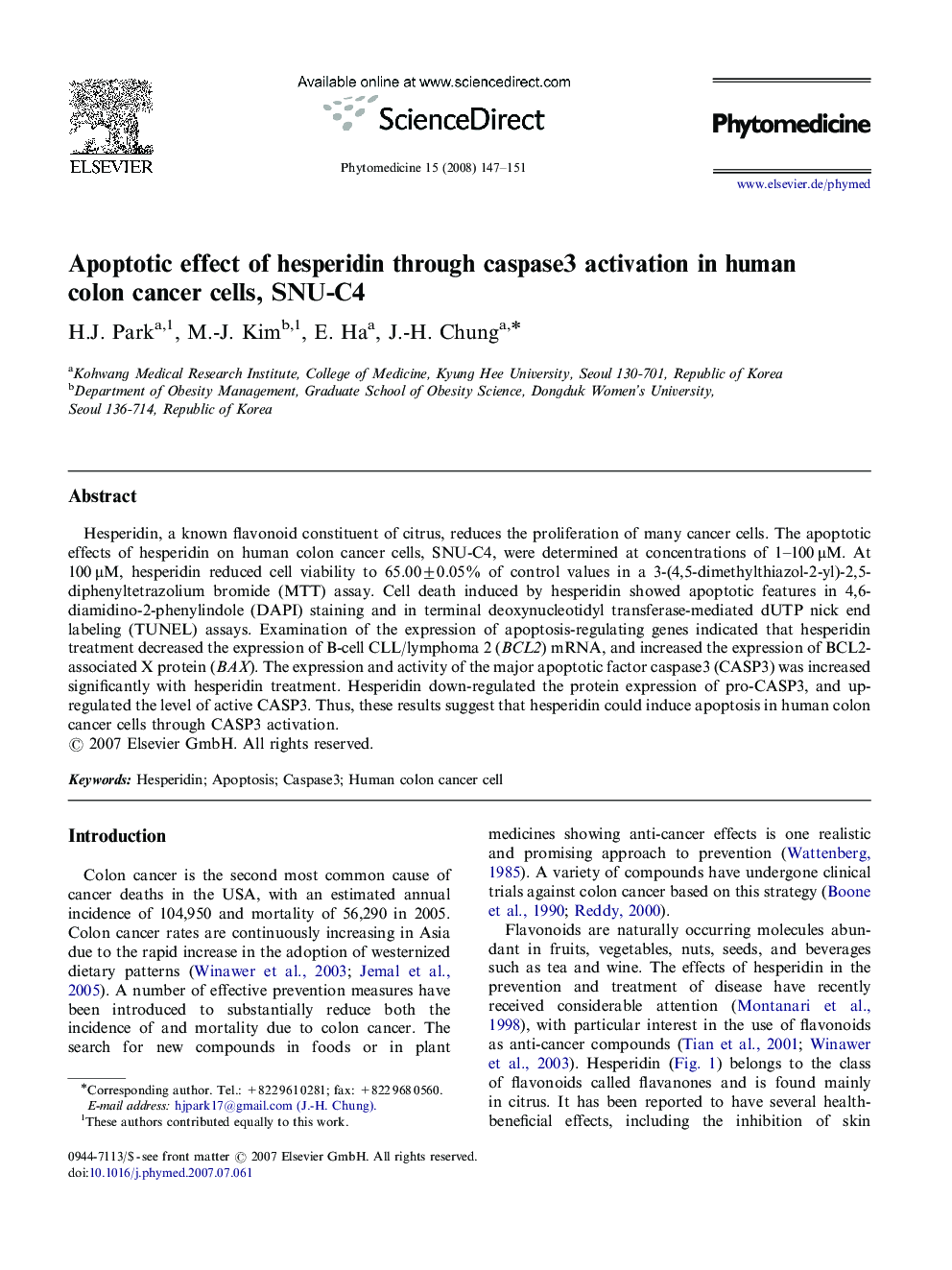| Article ID | Journal | Published Year | Pages | File Type |
|---|---|---|---|---|
| 2497561 | Phytomedicine | 2008 | 5 Pages |
Hesperidin, a known flavonoid constituent of citrus, reduces the proliferation of many cancer cells. The apoptotic effects of hesperidin on human colon cancer cells, SNU-C4, were determined at concentrations of 1–100 μM. At 100 μM, hesperidin reduced cell viability to 65.00±0.05% of control values in a 3-(4,5-dimethylthiazol-2-yl)-2,5-diphenyltetrazolium bromide (MTT) assay. Cell death induced by hesperidin showed apoptotic features in 4,6-diamidino-2-phenylindole (DAPI) staining and in terminal deoxynucleotidyl transferase-mediated dUTP nick end labeling (TUNEL) assays. Examination of the expression of apoptosis-regulating genes indicated that hesperidin treatment decreased the expression of B-cell CLL/lymphoma 2 (BCL2) mRNA, and increased the expression of BCL2-associated X protein (BAX). The expression and activity of the major apoptotic factor caspase3 (CASP3) was increased significantly with hesperidin treatment. Hesperidin down-regulated the protein expression of pro-CASP3, and up-regulated the level of active CASP3. Thus, these results suggest that hesperidin could induce apoptosis in human colon cancer cells through CASP3 activation.
